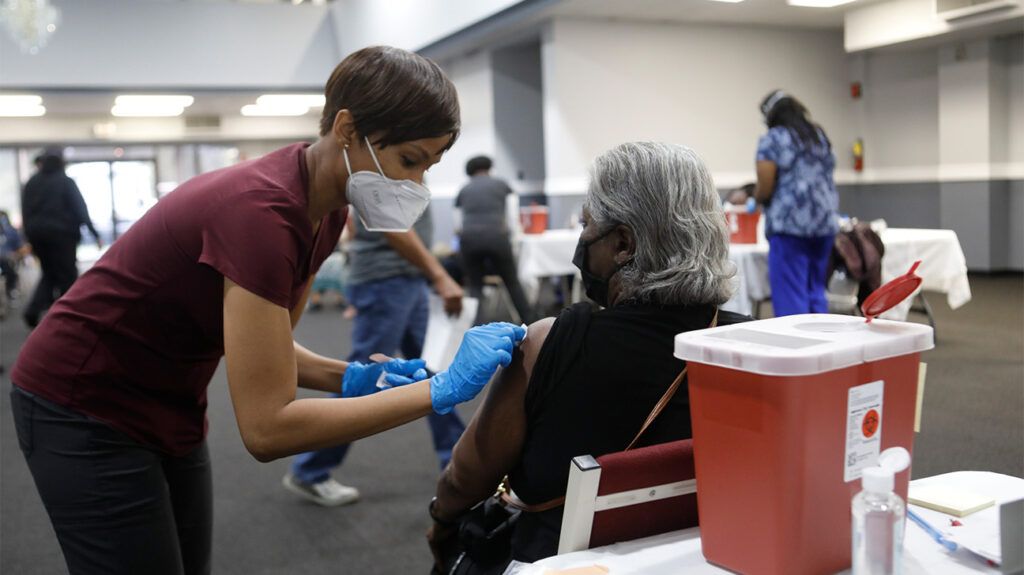Systemic racism in healthcare and medical research contributes to medical myths affecting Black people, such as misconceptions about pain tolerance. These myths can lead to undertreatment and poor quality care.
In the United States, Black people often experience disparities in healthcare access and outcomes.
These disparities are not due to inherent racial differences but rather result from systemic racism.
This article examines various medical myths that harm Black people and explains why they are harmful and how to overcome them.

A
The “default human” concept assumes medical knowledge and treatment approaches developed for and by this group universally apply to all individuals, regardless of their racial, ethnic, or gender identities.
Consequences of the “default human” myth may include:
- Inherent biases: Medical professionals may unconsciously
hold biases and stereotypes that affect their interactions with patients who do not conform to the “default human” model. - Gaps in education: Medical curriculums may not teach how certain conditions present in non-white people, which can lead to differences in treatment recommendations and patient experiences.
- Underrepresentation: Similarly, medical curriculums and resources may underrepresent non-white people, such as an overrepresentation of lighter skin tones in medical textbook infographics.
- Care and treatment inequities: For example, disparities in maternal healthcare contribute to a higher risk of death during or after childbirth for Black females.
The myth that Black people have a higher pain tolerance than white people may be due to a significant number of medical professionals believing that Black people have thicker skin than white people.
A 2016 study highlights that Black Americans receive pain treatment less frequently than white Americans. When they receive treatment, they tend to receive lower doses of pain medication.
Believing that Black people have a higher pain tolerance can lead to the undertreatment of pain, resulting in inadequate care and potential long-term health consequences.
Some healthcare professionals may believe that Black people have an inherent vitamin D deficiency due to their darker skin.
While it is true that darker skin requires more sun exposure to produce vitamin D, not all Black people have a deficiency. Black people living in
Additionally, vitamin D levels
The stereotype that Black people are
This stereotype can lead to healthcare professionals racially profiling and undertreating Black patients. In turn, mistrust between healthcare professionals and Black patients can develop, impairing access to proper pain management.
Another myth is that Black people do not require skin care or sunscreen due to darker skin tones.
Neglecting sun protection and skin care
Melanoma is more common in white people. However, it can still occur in Black people and other people color. People of color may receive a diagnosis at more advanced stages of skin cancer, which leads to worse outcomes.
A
Some people have
This myth, along with
Overcoming harmful medical myths and addressing prejudice in healthcare is a
People can take the following steps to overcome harmful medical myths:
- Stay informed: People can learn about their own health history, family medical history, and any preexisting conditions. This knowledge can help people get the care they need when discussing options with healthcare professionals.
- Seek competent healthcare professionals: Choose doctors who are culturally competent and aware of the unique needs and experiences of Black people.
- Bring a trusted advocate: If possible, people can bring a trusted family member or friend to medical appointments. They can provide support, ask questions, and help ensure that the person receives proper care.
- Get multiple opinions: People should not be afraid to get a second opinion if they feel that a healthcare professional is not taking them seriously or is making decisions influenced by prejudice.
Harmful medical myths that affect Black people, such as different pain tolerance levels or a higher risk of drug addiction, stem from systemic racism.
Addressing and overcoming these myths requires a multifaceted approach involving education, awareness, and systemic changes within the healthcare system.
It is vital to acknowledge the historical context and work toward eliminating racial disparities in healthcare while fostering trust and inclusivity.
